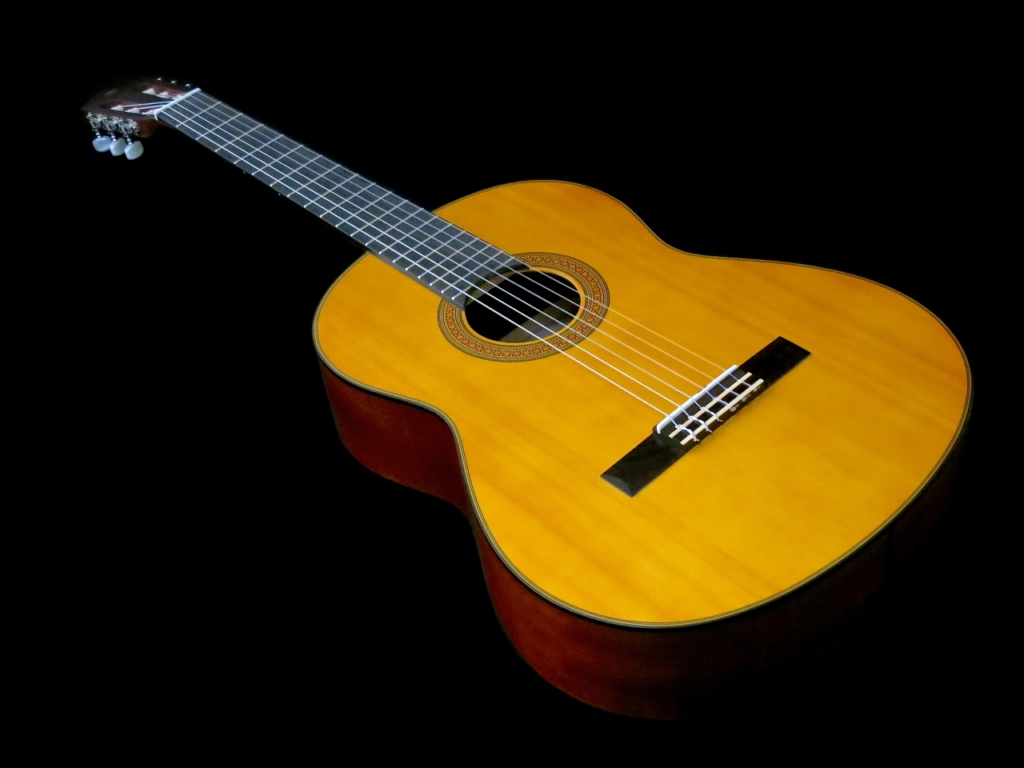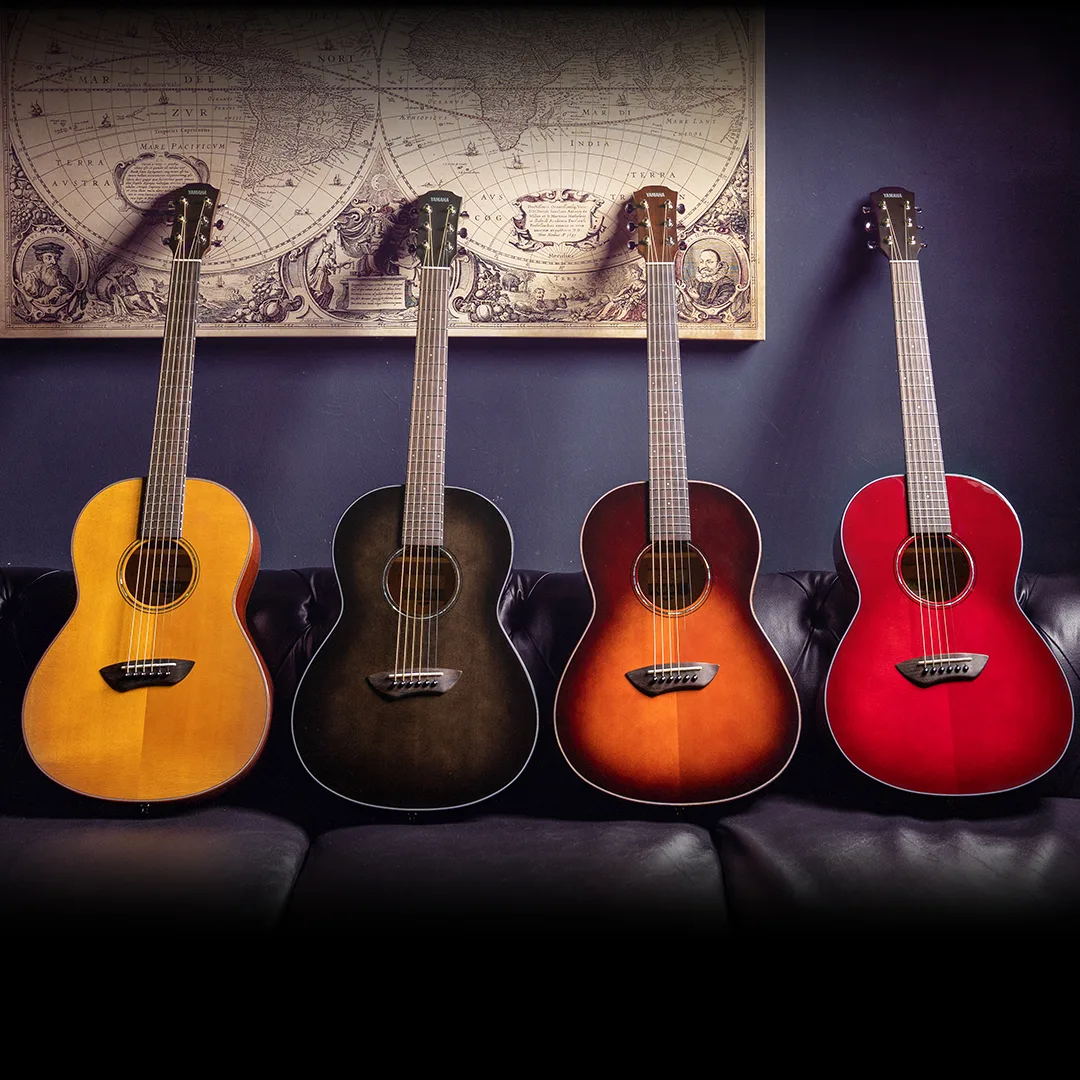Are you considering buying a Yamaha guitar and wondering if it will hold its value over time? As someone who has owned multiple guitars and is always looking for the best investment, I understand your concerns. With so many brands and models out there, it can be overwhelming to figure out which one will retain its value in the long run. But fear not, my fellow guitarist!
In this article, we’ll delve into the surprising truth about whether Yamaha guitars hold their value or not. From my personal experience as well as extensive research on this topic, I’ll provide you with all the information you need to make an informed decision when it comes to investing in a Yamaha guitar. So let’s dive in and find out if this popular brand lives up to its reputation of having instruments that stand the test of time!
So, Do Yamaha guitars hold their value??
Yamaha guitars do hold their value well in the market. This may come as a surprise to some, as they are not typically considered high-end or luxury instruments like other brands such as Gibson or Fender. However, what sets Yamaha apart is their consistent quality and reliable performance.
Yamaha has been producing guitars since the late 1940s and has established a strong reputation for crafting durable and well-crafted instruments at an affordable price point. Their attention to detail and use of high-quality materials have made them a favorite among musicians of all levels.
In addition, Yamaha offers a wide range of guitar models to cater to different styles and preferences, making them accessible to a larger audience. This also means that there is always demand for their guitars in the market.
Furthermore, Yamaha’s commitment to innovation and constantly improving their designs keeps their guitars relevant and desirable even years after purchase. This helps maintain the value of their instruments over time.
Overall, while Yamaha may not have the same prestige as some other guitar brands, they have proven themselves to be dependable and valuable investments for musicians. So if you’re looking for a guitar that will retain its value over time without breaking the bank, consider investing in a Yamaha.
Understanding the Factors that Influence a Guitar’s Resale Value
When you think about selling a guitar, its resale value is often a mix of different factors coming together. Brand plays a significant role; well-known names like Fender or Gibson can fetch higher prices due to their popularity and trust among musicians. The model also matters—a classic Stratocaster might be more desirable than an off-brand copy. Moreover, the condition of your instrument is crucial. A guitar that’s been kept in pristine shape will naturally sell for more than one with dings and scratches.
Next up, consider the rarity and age of the guitar. Vintage guitars often have stories etched into their strings, adding some mystique that modern instruments can’t quite capture. Limited editions or discontinued models are also particularly enchanting to collectors searching for something unique. Additionally, any modifications you’ve made may either add to the value or detract from it—especially if they alter the original sound quality significantly.
Here are some other key points:
- The market demand: If there’s high interest in your specific type of guitar, you’ll likely get a better price.
- The season: Believe it or not, certain times of year can affect sales; people often buy gear during holiday seasons.
- Aesthetic appeal: Looks matter! A visually striking guitar catches eyes and raises offers.
In essence, understanding these elements helps you anticipate how much you might earn when parting ways with your beloved six-string companion.
Investigating Historical Price Trends of Yamaha Guitars
Exploring the history of Yamaha guitar prices is like uncovering a treasure trove for music lovers and collectors alike. In the 1970s, Yamaha first introduced its acoustic guitars to the market, offering high-quality craftsmanship at an affordable price. Back then, you could snag a beautifully made FG-series guitar for under $200. Each strum reflected exceptional build quality that rivaled more expensive brands. Over time, collectors have noticed these early models appreciating in value significantly.
Fast forward to today, and you’ll see quite a different landscape. While still known for their reliability and sound quality, modern Yamaha guitars now range from budget-friendly options to professional-grade instruments worth thousands of dollars. Factors influencing this shift include advancements in technology, materials used, and even brand reputation solidified over decades. For enthusiasts looking to invest:
- Vintage models can fetch surprisingly high prices.
- Newer lines offer diverse features catering to various skill levels.
By understanding these trends, one gains an appreciation not just for the instrument itself but also for how it fits into larger economic patterns over time—a melody composed by supply and demand on the strings of consumer interest.
Read also: yamaha fg700 guitar
Assessing the Quality and Durability of Yamaha Guitars
When it comes to assessing the quality and durability of Yamaha guitars, you’re stepping into a world where craftsmanship meets cutting-edge technology. First things first, let’s talk about the build. Yamaha uses top-notch materials like spruce for their guitar tops and rosewood or mahogany for the bodies, ensuring each instrument provides rich tones and lasting strength. Whether you’re strumming on an acoustic or rocking out with an electric model, you’ll find that these guitars are built to withstand hours of playing without losing their resonance or structural integrity. The attention to detail in every curve and joint ensures not just beauty but longevity.
Now, onto playability. A guitar might look good and be made from excellent materials, but if it’s uncomfortable to play, what’s the point? Yamaha has nailed this aspect too by engineering neck designs that feel incredibly smooth under your fingers. Moreover, they pay close attention to fret placement and action height, which means less strain on your hands during long sessions. Many users rave about how well these guitars stay in tune over time—a crucial factor when considering durability.
- Top-notch materials: Spruce tops; rosewood/mahogany bodies.
- User comfort: Smooth neck designs; perfect fret placement.
- Tuning stability: Stays in tune longer than many competitors.
In short, investing in a Yamaha guitar often means getting an instrument that will stand the test of time while providing exceptional sound quality.

Considering Brand Reputation: Does Yamaha Guitar equate to Value?
When you think about guitars, Yamaha often comes to mind. It’s a brand that has been around for years, resonating with both beginners and seasoned musicians alike. But does owning a Yamaha guitar really mean you’re getting the best bang for your buck? Well, there are several reasons why people might say “yes”. Firstly, Yamaha has a reputation built on decades of consistent quality. Their instruments tend to be durable and well-crafted, standing up to the wear and tear of regular use.
Moreover, Yamaha offers something for everyone—whether you’re just picking up your first guitar or you’ve been playing for decades. The variety they offer is impressive:
- Acoustic
- Electric
- Bass
Each category features models that are celebrated not just for their construction but also their sound quality. The tones are rich and dynamic; it’s hard not to fall in love with how these guitars feel in your hands.
But let’s get into specifics. One key area where Yamaha shines is its balance between affordability and excellence. You don’t need to break the bank to own an instrument that’s genuinely enjoyable to play. This makes it an attractive option for younger players or anyone on a budget who still wants great sound without compromise.
Also worth mentioning is how easy these guitars make learning music theory and techniques easier due to their user-friendly design. Intuitive fretboard layouts, comfortable necks—all contribute toward making each practice session productive yet enjoyable.
In short: when considering value against brand reputation, Yamaha tends towards being nearer the top of most discerning player’s lists—and quite deservedly so!
You may also like: how to teach piano
Conclusion: Do Yamaha Guitars Hold Their Value? The Final Verdict
When it comes to musical instruments, guitars often hold a special place in people’s hearts. Yamaha, a well-known brand in the world of music, has been crafting guitars for decades. But do these finely made instruments maintain their value over time? Let’s dive into this fascinating topic.
Yamaha guitars are celebrated for their exceptional build quality and timeless sound. Whether you’re strumming an acoustic or rocking out on an electric guitar, you can expect consistent performance from a Yamaha instrument. The craftsmanship that goes into each guitar ensures durability and reliability—key factors when considering long-term value. For instance:
- High-quality materials
- Expert assembly
- Durable finishes
These elements combine to create an instrument likely to endure years of playing without significant wear.
On the financial side, Yamaha guitars also tend to retain their worth pretty effectively. While not all models will appreciate over time, many do hold steady prices on the second-hand market due to their reputation and proven track record among musicians. In particular:
- Limited edition releases
- Vintage models
- Certain signature series
These categories often see increased demand as they become rarer with age.
So what’s the final verdict? Both functionally and financially, Yamaha guitars generally stand firm against the test of time. Their blend of superior quality and enduring appeal makes them a wise investment for any musician.

